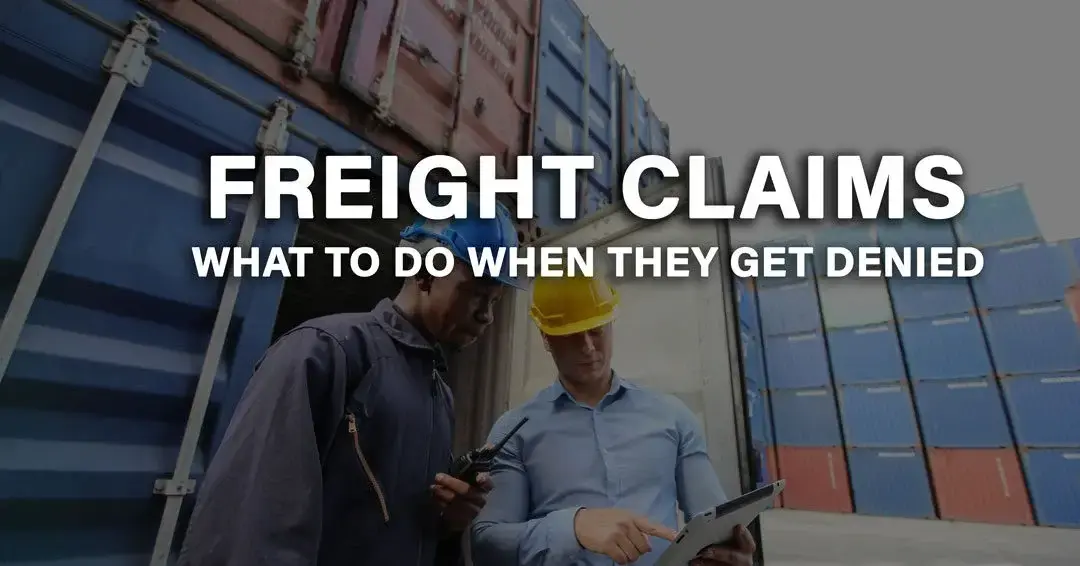
When moving mission-critical equipment—the parts that power grids, run manufacturing lines, or keep national networks online—what is the true cost of "saving" a few thousand dollars on freight? It's a question many businesses ask, often lured by a low-ball quote from a standard carrier. But here's the unsettling truth: for sectors where failure is simply not an option, that upfront "saving" is almost always a trap.
Standard logistics carriers are designed for predictability and volume, prioritizing low cost for routine shipments. They're not equipped for the unique complexity, high risk, and urgent stakes of specialized freight.
The solution here is very clear. Any upfront savings you think you'll get by choosing a standard, low-cost carrier are going to get lost in the massive, multi-layered, and often hidden costs of 'cheap' logistics that show up when things inevitably go wrong. Below, we outline the three core categories of hidden expenses that prove standard freight is, ultimately, the most expensive option for your most critical moves.
1. The Real Cost of Downtime: The Most Expensive Delay
When you look at a freight invoice, you see the cost of transportation. What you don't see is the cost of delay—and for critical infrastructure, delay is the costliest four-letter word.
Why Standard Service Guarantees Failure
A standard LTL (Less-than-Truckload) or even full truckload (TL) carrier operates on a generalized schedule. If a routine shipment of retail goods is a day late, the consequence is small: a slight delay in stocking a shelf. If a core component for a power station or a crucial part for a heavy machinery maintenance project is late, the consequences are huge.
According to industry analysis, the average hourly cost of downtime across critical sectors—such as manufacturing, energy, or data centers—can range from $10,000 to well over $50,000 per hour.
This figure accounts for lost productivity, penalties, wasted labor hours, and lost revenue opportunities.
If a "cheap" carrier saves you $5,000 upfront but causes a 48-hour delay,
The hidden costs of 'cheap' logistics suddenly balloon to $480,000 to $2.4 million in downtime alone.
The initial savings are not just erased; they are multiplied into a massive liability.
The AOG Effect Beyond Aviation
To understand the stakes, consider the aviation industry's term: "Aircraft on Ground" (AOG). When an aircraft is AOG due to a parts shortage, every minute is a financial bleed. You should view every piece of your critical infrastructure—whether it's a gas turbine blade, a massive switchgear component, or an essential transformer—as having its own AOG status when it’s non-operational. As we've noted previously, effective AOG logistics is the secret to heavy machinery uptime.
For example, a delayed heavy haul component for a natural gas compressor station doesn't just cause a delivery penalty; it disrupts the energy supply chain for an entire region, potentially leaving thousands without power or heat.
Forced Expedited Shipping: Erasing the Initial Savings
What happens when a cheap carrier fails and your facility is shut down? Panic sets in. You are immediately forced to switch to premium, emergency shipping services—chartered air freight, dedicated hotshot drivers, or other highly customized transport.
The math here is painful:
The difference between the cheap, failed rate and the emergency rate is often 5x to 10x the original "savings.”
You end up paying an exorbitant premium, and you’ve still incurred a delay. The low-cost choice guarantees a high-cost recovery scenario. For projects like crucial grid maintenance, precision is everything, and cheap logistics cannot deliver it, as discussed in our piece on precision inbound for grid maintenance success.
2. Compliance, Non-Adherence, and Security Failures
Standard freight carriers lack the specialized knowledge required for non-routine logistics, especially those involving oversized or international shipments. This results in the second major category of hidden costs of 'cheap' logistics: penalties and property damage.
Navigating the Regulations
For complex movements—oversized/overweight (OOG), moves crossing multiple state lines with different regulations, or international freight—the logistics are less about trucking and more about regulatory compliance.
Standard carriers lack the expertise to handle this regulation minefield. They might not secure the correct permits, fail to follow mandated route surveys, or overlook critical aspects of global customs requirements. This is where the price of error is measured in massive non-compliance fines.
-
Example: A major OOG shipment that fails to adhere to state-mandated curfews or uses an unapproved route can result in fines reaching tens of thousands of dollars per violation, often combined with the expense of having the shipment detained for days or weeks. For global freight, a minor error in documentation can lead to the asset being seized at the border.
High-Value Damage and Improper Handling
Your critical equipment—a delicate server rack, a large hydraulic cylinder, or a piece of heavy machinery—is often valued at hundreds of thousands or even millions of dollars.
A standard carrier's insurance policy often caps coverage at levels wholly insufficient for multi-million-dollar specialized machinery. Furthermore, standard LTL/TL handling involves a high risk of damage from improper loading, securing, or cross-docking—procedures designed for palletized consumer goods, not bespoke assets.
Specialized Freight Management (SFM), on the other hand, provides the precise, bespoke requirements you need: specialized trailers (flatbeds, step-decks), expert rigging, and often, dedicated escorting and climate control. The total cost of a component damaged by improper handling is not just the cost of replacement; it's the cost of replacement plus the downtime outlined in the previous section.
Reputational and Contractual Damage
One of the most insidious hidden costs of 'cheap' logistics is the damage to your reputation. If you are the link in the supply chain responsible for a failure that results in a major power outage or an industrial accident, the damage to your reputation can be irreversible.
Additionally, a history of missed deadlines or logistics failures can disqualify your company from lucrative future contracts with strict uptime clauses.
3. Personnel, Management, and Opportunity Cost
Even if a budget carrier manages to deliver the freight without a massive failure, the internal resource drain can still cripple your project budget.
The Managerial Drag: The Cost of Unpaid Labor
When "cheap" logistics fails, your highly-paid procurement managers, engineers, and project leaders must become full-time tracking and troubleshooting clerks. They spend hours chasing down a driver, arguing with dispatch, and trying to secure emergency backup—tasks that fall far outside their primary roles.
This is a cost you can't afford. Every hour they spend managing a logistics crisis is an hour they are not spending on core business activities, strategic planning, or high-value tasks. You've essentially paid for a cheap service and forced your most expensive employees to do the work of a logistics manager to make up for the carrier's inability to do the job right..
Vetting and Network Risk
Standard carriers that offer specialized services on the side often do so by relying on large, fluid networks of unvetted, third-party sub-carriers. When you choose them, you are inheriting the supply chain risk and instability of an entire network you know nothing about. You lose control over the critical "last mile” of your most important shipments.
A truly specialized provider performs that due diligence for you, ensuring every part of the move—from the carrier to the driver to the permitting agency—meets a rigorous standard. The difference between the two is why Specialized Freight Management is essential for critical infrastructure.
Shifting the Focus from Price to Total Value
The choice for critical infrastructure logistics is fundamentally not between "cheap" and "expensive." It is between a budget rate that virtually guarantees eventual, catastrophic hidden costs of 'cheap' logistics, and a strategic investment that guarantees operational uptime.
Real savings are not found on the line-item for transportation; they are found in the ability to anticipate, mitigate, and eliminate the risks that lead to multi-million-dollar failures. In mission-critical movements, the lowest-cost logistics partner is almost never the lowest-risk partner.
This shift in focus pushes you further into the "Decision" stage of the procurement journey. Once you understand why standard logistics services are fundamentally inadequate, you are ready to ask the right questions of a potential partner,
A true Specialized Freight Management partner understands this crucial balance, moving you beyond the spreadsheet cost and into a realm of predictable, secure, and fully compliant logistics. It's time to choose a partner that secures your supply chain and protects your mission-critical uptime. Customodal is that specialized partner, turning logistics from a point of vulnerability into a competitive advantage.
Contact Customodal today to evaluate your current logistics strategy and ensure your critical moves are protected from failure.




